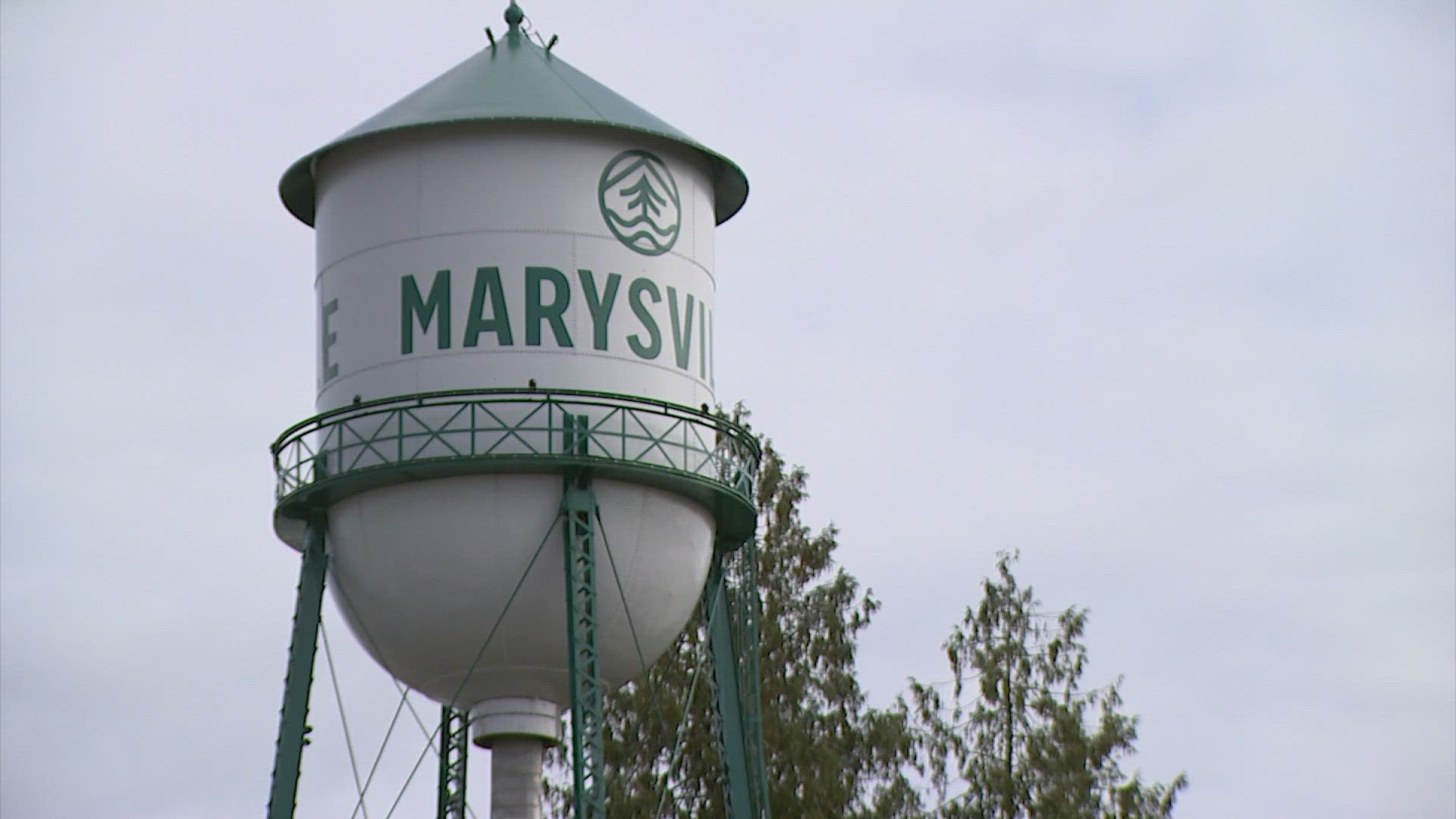MARYSVILLE, Wash. — A rumbling train through downtown Marysville reminds us that in communities across our country, people are finding themselves on the wrong side of the tracks.
Addiction and poverty are putting people at a crossroads and pushing cities to rethink how they handle crime.
"We lead with compassion," said Jon Nehring, Marysville mayor. "We need to try to get people the help they need."
Nehring is pushing a plan that has fallen out of favor over the years -- mandatory minimum sentences.
The Marysville plan would target repeat offenders in the city.
"What we've been doing with them isn't working," Nehring said. "We believe we have to break that cycle somehow."
Anyone convicted of theft, car prowling, trespassing, or public drug use three times would serve a mandatory 30-day sentence in the city jail.
The minimum sentence would jump to 60 days for five convictions and 90 days for seven convictions.
The difference, though, is the new Marysville jail has a medical unit that can safely detox addicts, and has social workers who can help get them long-term treatment and housing.
"If you can get them into the facility, get them detoxed, then you can have that conversation," Nehring said. "If they'll accept treatment and complete a program we are more than willing to waive the remainder of their 30-day sentence."
"Mandatory minimums don't work," said Jazmyn Clark with the ACLU of Washington.
Clark said mandatory minimums do not allow judges to use their discretion in sentencing. For example, if a mother was shoplifting to feed her baby.
"People can lose their jobs, housing, children and access to other government resources," Clark said.
Clark believes cities should be investing in treatment centers and affordable housing rather than putting addicted people in jail.
"Because if the person is not ready to move past that substance use disorder, forcing them into treatment for the duration of their incarceration isn't going to change that," Clark said.
Marysville has been a leader in "re-criminalizing" drugs since a state Supreme Court decision essentially made small amounts of drugs legal in 2021.
Nehring concedes locking up more people will cost taxpayers more money, but he believes people on both sides of the tracks will benefit.
"I can honestly tell you, if I had a loved one addicted to fentanyl, I would pray they ended up in this facility to give them a shot," Nehring said.
The city is still fine-tuning the ordinance. The city council is expected to vote on the proposal in October.

